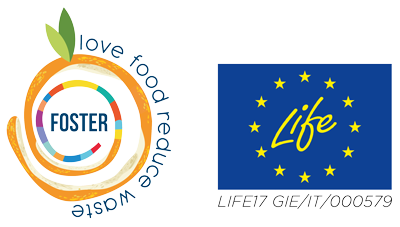Beneficiaries
Its mission is to enhance professional development, the growth of local economies and labour organizations.
ENAIP NET provides its services through 700 classrooms and 600 laboratories in the following sectors: Wellness, Body and mechanical car, Commerce, Marketing, Language, Electric, Electronic, Mechanic, Tourism, Catering and restaurant.
It is one of the main organizations in the food and hospitality VET sector in Italy (2,600 pupils every year).
It is active in:
• VOCATIONAL EDUCATION AND TRAINING (iVET; cVET; lifelong training for companies; apprenticeship);
• EMPLOYMENT SERVICES (tailor made training; job placement; skills analysis and certification);
• INNOVATION AND DEVELOPMENT (research and surveys; international cooperation; technical assistance; training programs start up and improvement).
AFPA offers an individualized service to the people it hosts. It builds with them a professional project correspond-ing to their aspirations, whether it is a job search or a conversion. For this, the agency provides more than 400 courses to more than 230 trades.
AFPA is present in all French regions with nearly 6500 collaborators and develops some actions abroad and in Eu-rope. It is a certification body (titles from the French Labour Ministry). A majority of these titles are at levels 5 and 4 and 3 (new national frame of certification). These 102 permanent centers also provide accommodation and catering for trainees, whether active, employed or seeking employment.
The AFPA is committed to a social utility dimension by:
• helping people access, remain in and return to the workforce ;
• contributing to the development of our individual and collective social value ;
• helping combat exclusion, social inequality and discrimination ;
• contributing to the development of local regions and companies.
The food service sector at AFPA this is 43 training centers, 110 trainers, between 1500 and 2000 people trained / year in the different training courses as :
• Responsible for kitchen in institutional catering;
• Manager in institutional catering;
• Chef;
• Chef agent (assistant);
• Waiters.
Represents more than 1,600 education and training centres, this network covers around 750,000 students and 40,000 teachers.
CECE supports this part of the community in 4 main areas:
(1) Organisation of formation courses for teachers.
(2) Political Representation in collective bargaining representing all CECE affiliated centres.
(3) Internationalisation of educational centres. Promoting European values and its programs.
(4) Legal consultancy for the member institutions.
CECE has three key departments relevant for European projects:
• Europe department: to facilitate the presence of Spanish schools and educational centres in Europe, as well as to make Europe an integral part of the school and higher education life in Spain. To this end, Eu-rope department promotes the participation of the centres in projects co-financed by the European Commission, since it represents very enriching experiences by the exchange of good practices and knowledge, not only of diverse ways of working, but also of the variety of visions and teaching method-ologies.
• Training department: CECE organises in-person and online courses directed towards teachers, princi-pals, future teachers and unemployed people to improve the quality of education.
• Press and communication department: It maintains a permanent channel with the media and the educa-tional community through social networks, Actualidad Docente magazine and the conferences and con-gresses that CECE organizes to discuss the future of education each year.
Mission:
• Enhance Italian chef’s professionalism and culinary culture of country.
• Protect food resources, culinary traditions and the expertise of territories.
• Constantly attentive towards and updated on new culinary techniques and technologies.
• Promote exchanges and aggregation among different players in the food chain.
• Sensitize new generations of professionals towards continuous training.
• Promote studies and research, to respond appropriately to food market changes and to changing nutrition needs.
• Become a vehicle in Italy and abroad for healthy, high quality restaurant service
Collaboration:
• MIUR (Ministry of Education, University and Research) to support the school / work alternation
• MINISTRY OF HEALTH to promote healthy and correct nutrition' initiatives.
• MIPAAF (Ministry of Agricultural, Food, and Forestry Policies) and COLDIRETTI to protect and promote food local products DOP and IGP.
• CNA (National Confederation of Craft Trades) for occupational support policies.
• UNI for establishing a Technical Standard regarding the culinary profession and its certifications according to ISO and CEN standards.
• SOLIDUS for the cooperation of all professions in the hospitality industry.
The Institute of Tourism Studies, located close to the Airport and with a campus in Qala, Gozo, currently offers programmes ranging from Foundation to Degree level, and is working on introducing Master programmes in the near future. Agreements with top international Universities and Institutions ascertain that students not only have the possibility to graduate from a reputable institute, but in the process also get the opportunity to study for a period of time within these institutions across Europe in order to obtain a wider experience and hone their skills to an international level. Among the many agreements ITS has secured are those with the highly esteemed Haaga-Helia University of Applied Sciences, Finland and Institut Paul Bocuse, France.
ITS’ main responsibility is to provide the Tourism Sector, both local and International, with professional personnel who are able to guarantee an excellent standard of products and services within the Hospitality Industry. Students studying at the Institute of Tourism Studies are vast, with over 20% being foreigners coming from 37 different countries.
Attesting to the success of the ITS training programmes is the fact that Institute of Tourism Studies graduates enjoy a 98% success rate of finding a job, both locally and internationally.
Along the years, the two organizations realized the need to cooperate at an International and European level given Malta’s gradual integration into the European Union. On May 6th 2004, the Malta Hotels and Restaurants Association (MHRA) also became one of the MBB’s parent organizations following a ceremony inaugurated by the signing of a public deed.
After in depth discussions and negotiations between the Malta Chamber and the FOI, a merger between these two organizations took place in January 2009. The organization is now known as the Malta Chamber of Commerce, Enterprise and Industry after more than 80% of both Malta Chamber and FOI members approved the merger in September 2008.
The Malta Business Bureau thus represents the Malta Chamber of Commerce, Enterprise and Industry and the Malta Hotels and Restaurants Association in Brussels and Malta, liaising directly with their European counterpart organizations, particularly Eurochambres, BusinessEurope and HOTREC on policy and funding issues which directly affect Maltese business.
The MBB is comprised of a Head Office in Malta and a Representation Office in Brussels, the operations of which are overseen by MBB Chief Executive Officer, Mr. Joseph Tanti.
Its goal is to create an international research and education center for those working on renewing farming methods, protecting biodiversity, and building an organic relationship between gastronomy and agricultural science.
The university forms gastronomes, new professional figures with multi-disciplinary skills and knowledge in the fields of science, culture, politics, economics and ecology of food, working to apply them to production, distribution and sustainable consumption.
UNISG students, hailing from around the world, gain dynamic experiences in artisanal and industrial food production, thanks to complementary education in both sciences and humanities, sensory training, and hands-on learning during study trips across five continents.








